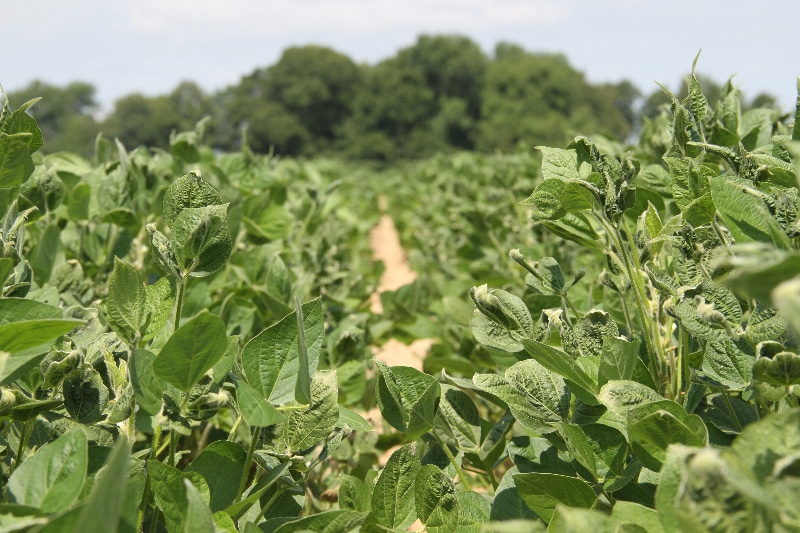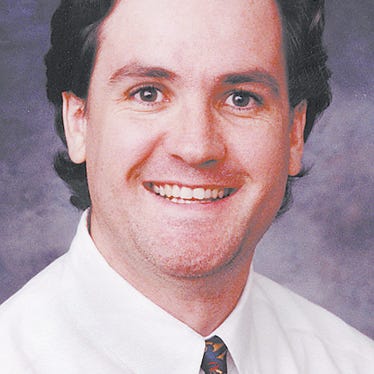
On Wednesday (Jan.4) morning, Arkansas Governor Asa Hutchinson approved the state Plant Board’s proposed regulations that would tighten restrictions on dicamba. Hutchinson said his actions "will not unnecessarily burden businesses." The state legislature will now take up the issue.
The governor’s decision comes following an often tumultuous 2016 growing season that saw major drift-related damage to row crops, vegetables and orchards following some producers’ illegal spraying of dicamba. The illegal spraying occurred mostly on dicamba-tolerant soybeans, which had been approved for planting in 2016.
However, while the seed was approved, new formulations of dicamba – promised as less volatile and less drift-prone – were not. Producers facing resistant pigweed pressures sprayed older dicamba formulations and drift damage quickly spread.
To address the problems, from the summer through mid-December, the Arkansas Plant Board went through the process of putting together new regulations.
Among them:
A ban on dicamba DMA salt and acid formulations. An exception to this would be use of the formulations on pastureland that is at least one mile from susceptible crops.
DGA salt and sodium salt would be prohibited from use from April 15 through September 15. An exception for applications would be for pastures at least one mile from susceptible crops.
Those using BASF’s Engenia herbicide on dicamba-tolerant soybeans and cotton must abide by a quarter-mile downwind buffer and a 100-foot buffer for other directions.
Anyone using DGA-based herbicides on dicamba-tolerant crops must be trained and certified by the state.
The governor’s decision was announced through a letter (http://bit.ly/2hWzVlu) written to Otis Howe, chairman of the Arkansas Plant Board.
“I’m very pleased with the support the governor has given the Plant Board by agreeing with the proposed regulations,” said Howe. “We met in his office this morning and he gave me the letter. He was very cordial and I couldn’t be more pleased.”
In the letter, the governor said he “met with both the proponents for and the opponents against this proposed amendment, and I reviewed and considered all of the public comments submitted to the Plant Board and to my office.”
Because “they were most frequently referenced in my meeting and the public comments” Hutchinson “analyzed” three issues:
Whether the Plant Board should completely ban dicamba due to its susceptibility to volatility and drift.
Whether the Plant Board should allow for the use of (Monsanto’s) XtendiMax with VaporGrip technology as approved by the EPA.
Whether the EPA’s testing and approval is sufficient for on-label use of VaporGrip technology in Arkansas.
The last bullet point was a particularly difficult hurdle during the Plant Board’s meetings. For years, Monsanto failed to provide the new formulations to University of Arkansas researchers for testing in the state, a prerequisite for approval. Such testing takes at least two years.
Hutchinson also asked that such prerequisites be made clearer. “The methods that are used and the research on which the Plant Board relies in approving new technologies must be more clearly defined in order to provide more certainty to all companies attempting to introduce these technologies in Arkansas. To this end, I am tasking the Plant Board to submit a solution to me within 45 days, which provides clear rules to industry as to what the Plant Board expects in terms of prior study and testing by independent third party research.”
Howe says the task is perfectly understandable. “We’re trying to set up a Pesticide Committee meeting, right now. As he asked, we want to clearly define what we’re asking industry to provide to the board in terms of testing. What do we require specifically for third-party unbiased information? Most of the time that would probably involve the University of Arkansas researchers.
“Once the Pesticide Committee does its work it’ll go to the full board. From there, the proposed requirements will enter the regular rule making process which again will include a public hearing, review by the Governor and Legislative Council.
“I think the board has a good idea of what the framework needs to be. In fact, at our last meeting, we had a proposal on this very thing that was pulled. I have no problem with the governor asking for specific rules -- that’s a reasonable request.
“It’s worth noting that every herbicide, fungicide, pesticide doesn’t come before the board. This, I think, would involve products like 2,4-D and dicamba that can have adverse impacts on neighboring crops and things like that. For those products, we’d like to have independent testing.”
The governor also intends to ask the legislature to increase maximum civil penalties (currently capped at $1,000) for “misapplication(s) to an amount that will actually serve as a deterrent.” In the lead up to the governor’s announcement, a cap of $25,000 per incident has been pushed.
Has the Plant Board recommended a new amount?
“The board has indeed said the cap on civil penalties needs to be increased," says Howe.
“The highest amount I heard was $25,000 for an ‘egregious’ violation. Honestly, there’s going to be a lot to work through if the legislature changes the law and allows us to increase the civil penalty amount.
“If that legislation comes out of the next session, the Plant Board will have to go back and each committee will decide if they want to change their penalty matrix to incorporate a higher civil penalty for violations. If they do, how much? Then, we’d have to take any proposed civil penalty change through the rule-making process to include a public hearing, a review by the governor and a review by the Legislative Council. Each proposed penalty matrix change would have to go through the whole rule-making process. That’s fine and it’s the way it’s supposed to work – there are probably some committees that won’t want to raise civil penalty amounts to be assessed for a violation.
“The definition of ‘egregious’ is also a worry for some people. I think in this context it makes sense to say it’s when someone does ‘something deliberately off-label that harms their neighbor.’ But that’s just me – the rest of the board may disagree.”
About the Author(s)
You May Also Like






